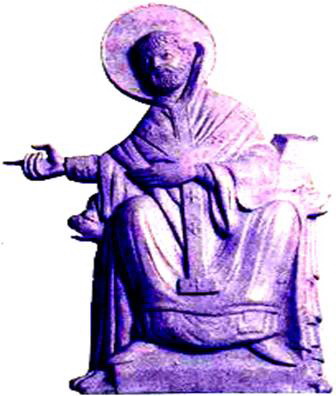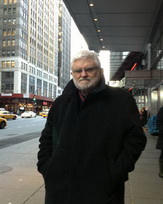I am from
this
site

May 28, 2014
Chris McDonnell, UK
Augustine of Canterbury
(Comments welcome here)
chris@mcdonnell83.freeserve.co.uk

|
I am from |

|
May 28, 2014 Chris McDonnell, UK Augustine of Canterbury (Comments welcome here) |
chris@mcdonnell83.freeserve.co.uk
|
The
Church recognises two men with the name Augustine, one Augustine of Hippo and
the other Augustine of Canterbury whose feast was celebrated yesterday, May 27th.
It was to this man that the title of Apostle of England belongs.
The
turn of the 6th Century is indeed a long time ago and the arrival of
Augustine in the company of his fellow monks, sent by Gregory, was
a significant time in the history of this island people.
He
was faced then with disagreements among bishops already here, the details of
which were chronicled by the Venerable Bede in his History of the English
Speaking people. Not unlike today really as people tried to come to terms with
each other and the Gospel message it was their task to preach.
The
establishment of
That
same fate was to befall Archbishop Oscar Romero who was
shot on 24 March 1980 while celebrating Mass at a small chapel located in a
hospital called La Divina Providencia one day after a sermon in which he had
called on Salvadoran soldiers, as Christians, to obey God's higher order and to
stop carrying out the government's repression and violations of basic human
rights. His previously conservative background and
hostility to liberation theology were transformed by his experience of ministry
as Archbishop. Offered protection in the weeks prior to his assassination, he
declined, indicating that his people did not have such protection, why should
he.
In
a speech only days before his death he said this.
“But
it is important to note why [the Church] has been persecuted. Not any and every
priest has been persecuted, not any and every institution has been attacked.
That part of the church has been attacked and persecuted that put itself on the
side of the people and went to the people's defense. Here again we find the same
key to understanding the persecution of the church: the poor.”
—
Óscar Romero, Speech at the Université catholique de
The
similarities with Francis are striking, given his transformation whilst
Archbishop of Buenos Aries and his subsequent witness to the Church and all
people as Bishop of Rome.
Our
lives are strengthened by the example of others, we are encouraged by their
determination, inspired by their perseverance.
Given
their lot in life, we often silently ask ourselves how we would match up if we
were faced with similar difficulties and challenges.
Although
it is in this present time that we live and move and have our being, we cannot
disengage ourselves from the historical context that is ours, our parents, our
society, our country. We choose our friends but have no choice in our parents.
Genetically our roots are deep within our people just as our faith springs from
the family of our Christian Church. This is our home, this is where we come
from, this is where we belong, however much we are challenged on the way.
Just
as we recognise the historical context so too we must be open to the excitement
of the journey ahead of us. Francis, Bishop of Rome has reinvigorated the spirit
of adventure that is our Christian pilgrimage. It is up to us to take up the
challenge in faith and hope.
END